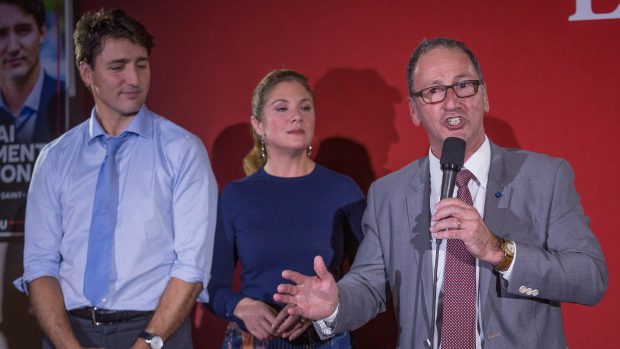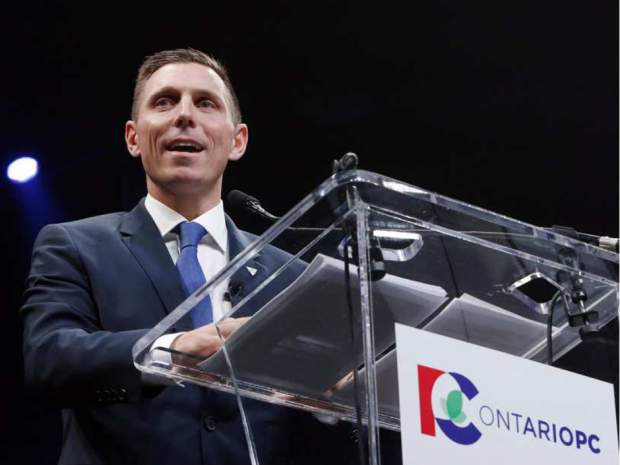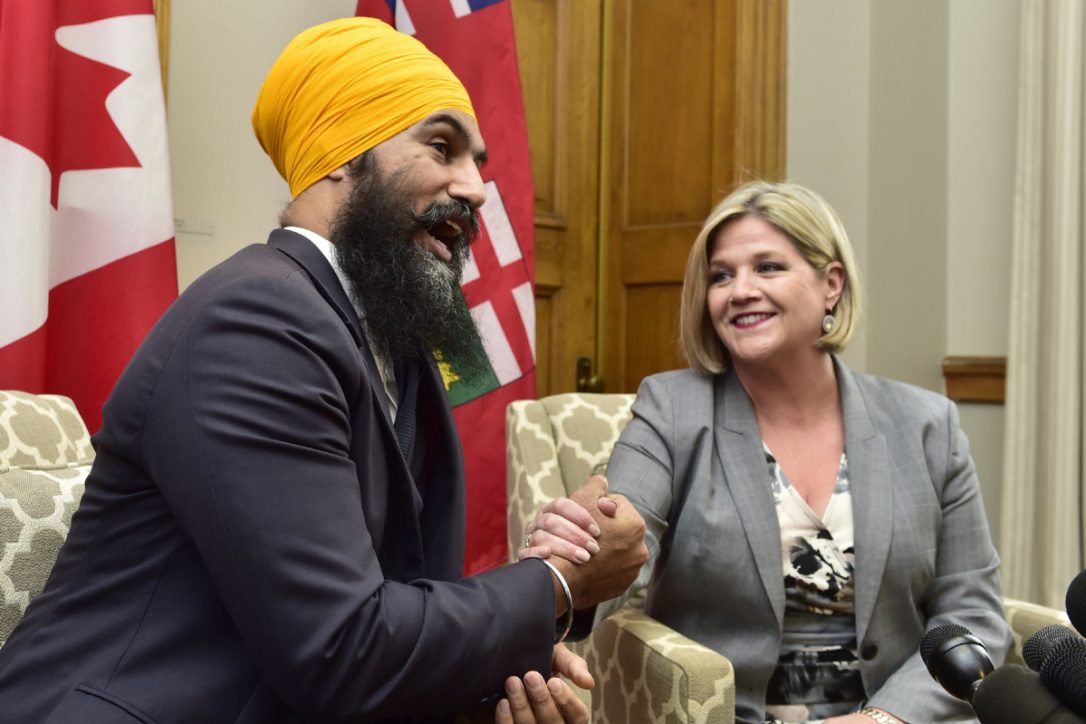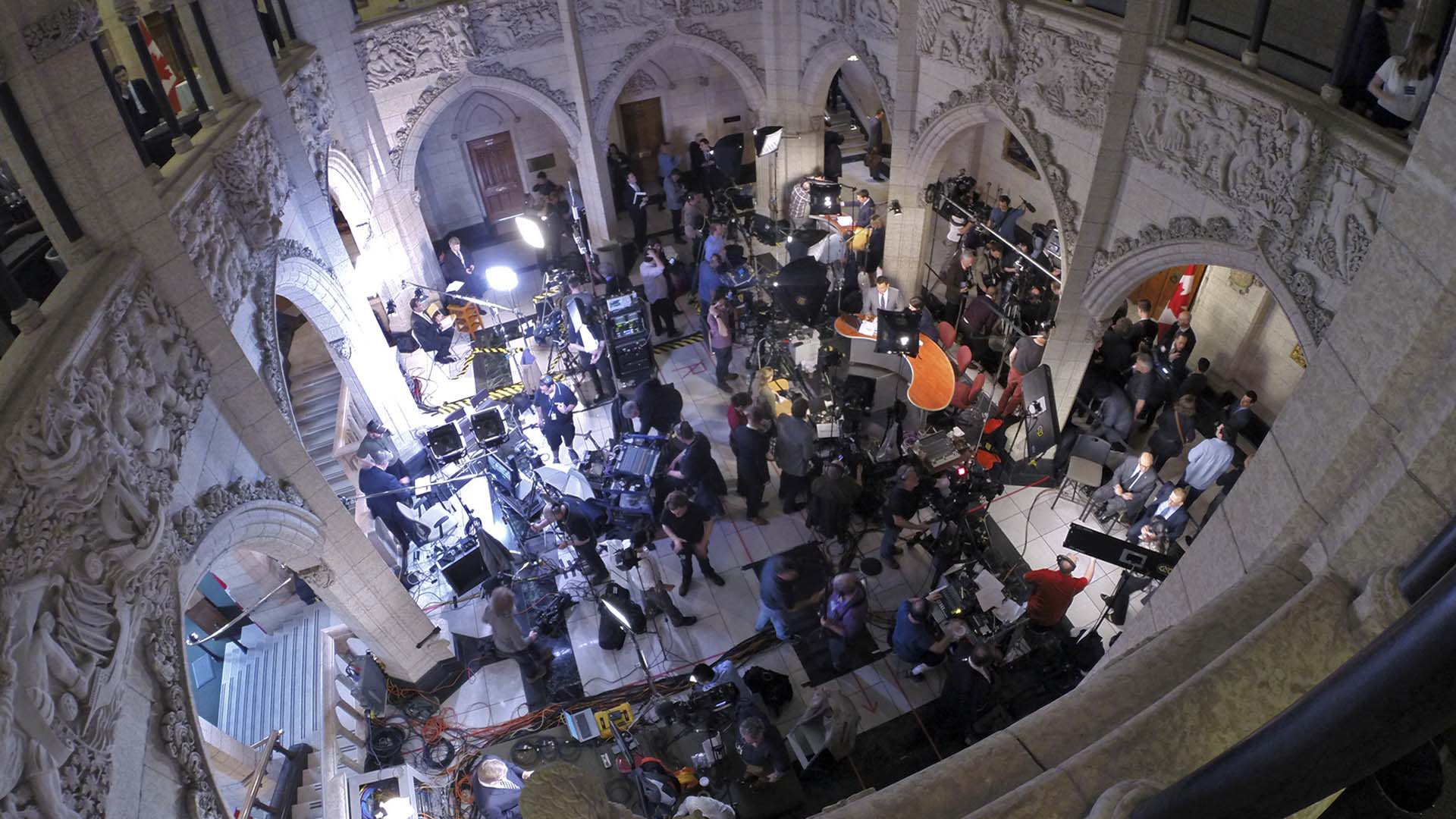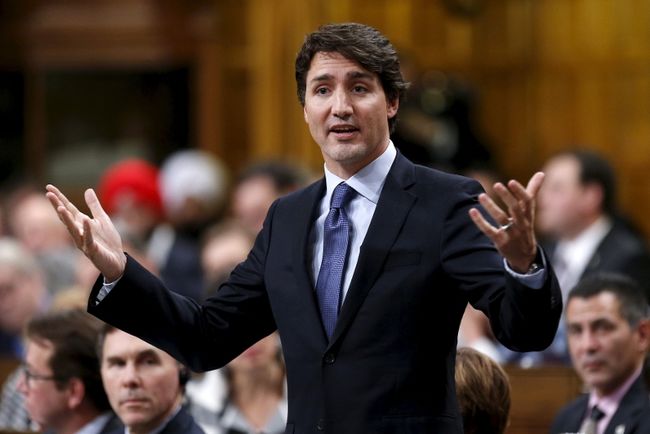Denial only works when everyone plays along. In 2013, elite Canada played a tremendous game of denial about the significance of the so-called "charter of values" proposed by Quebec premier Pauline Marois, which sought to deny state services and government jobs to citizens wearing "ostentatiously religious" headgear; ie: Muslim women with headscarves.
Because Marois was a separatist, she made an easy villain to unite against. English Canadian journalists and politicians, from Jason Kenney to the Toronto Star editorial board, thundered with righteous anger about this bigoted, hateful idea from a monstrous traitor. When Premier Marois ran for re-election the following year, those same voices declared the vote a de facto "referendum" on her cruel charter, and casting a ballot for her opponent, Liberal leader Philippe Couillard, the obligation of all right-thinking Quebeckers. When Couillard won a solid majority, it was deemed proof "the better angels of Quebeckers' nature prevailed," in the words of the Globe and Mail's Jeffrey Simpson.
It was a popular storyline, because it perpetuated a number of interlocking myths many powerful people in this country desperately want to believe: that Canadians are a univocally down with multiculturalism, that Quebeckers are good Canadians, and that the only bad things that happen in Quebec politics are the work of dastardly separatists (who all Good Quebeckers oppose anyway).
Today, four years later, these comforting myths lie in ruin. Premier Couillard, who never actually claimed to be much of a multiculturalist, has now gone further than Marois, and passed a ban on state services and government jobs for Muslim women who cover their faces. The new law is extraordinarily popular, boasting the backing of over 80% of Quebeckers. Indeed, we're told the only reason the provincial opposition parties voted against it was because it didn't go far enough.
In other words, it's fairly clear that Quebeckers simply do not want niqab-wearing Muslim women to enjoy full standing in their society. They want them to be ostracized and excluded as punishment for their regressive religious beliefs and traditions, which are deemed to have no place in 21st century Quebec. This is an opinion that transcends party, ideology, language — basically every variable.
It only gets worse from there, at least from the perspective of the denialists.
Now that there exists an all-party consensus in the province against the niqab, Ottawa politicians and national pundits cannot frame their opposition to the new legislation with any sort of euphemism or distraction. They are no longer opposing a naughty separatist government for whom an obviously more palatable alternative exists — they are opposing the administration of a premier who has been explicitly framed as the province's "good guy," and head of a federalist party the Canadian establishment has been universally endorsing for decades. It's thus extraordinarily difficult to offer any opposition to Premier Couillard's bill that doesn't come off as a knock against Quebec itself, and an insult to the sincere beliefs of over two-thirds of its residents. Prime Minister Trudeau has been uncharacteristically cautious in his words as of late, offering only equivocating opposition to a popular bill in a province whose votes he desperately wants — a cowardice which has hardly gone unnoticed in Anglo Canada. Jagmeet Singh has been more forceful, though at this point he doesn't have much to lose, given it's increasingly taken for granted that a pro-abortion, pro-LGBT politician who happens to wear a turban is himself too "ostentatiously religious" for Quebec to tolerate.
But the worst may be yet to come. Teeth are surely chattering over the possibility a pollster could soon reveal that banning veil-clad women from public spaces is an idea popular with Canadians outside Quebec, too. In 2013, Angus Reid found 33% of Ontarians — more than those who voted for Tim Hudak in the last election — supported the considerably more radical proposition of "outlawing religious clothing and symbols such as hijabs, turbans and skullcaps from being worn by the public seeking government services." Banning government employees from wearing such things got the support of 40% — a greater share of the public than elected Kathleen Wynne.
In theory, the man with the most to gain from all this is Andrew Scheer. His party is supported and run by the most Islam-skeptical segment of the Canadian population, and for a party perennially obsessed with winning Quebec votes, endorsing the niqab ban would offer an obvious inroad to a province that has otherwise been cold to Tory overtures. Yet Conservatives remain deeply traumatized by their 2015 loss, and the mainstream media narrative that it was directly attributable to the Harper government's policy (which now seems decidedly quaint) of requiring immigrant Muslim women to be unveiled when they take the oath of citizenship. The notion that the party must avoid getting near anything that sniffs of immigrant skepticism for fear of reenforcing racist stereotypes is a piece of conventional wisdom unlikely to be challenged by a cautious leader like Scheer, whose "provincial issue" rhetoric has only been mildly more stand-offish than Trudeau's.
No one truly likes the niqab. If any of our top politicians or journalists could wave a wand and permanently exile it from our borders, they surely would. Yet because we no longer engage with Islam as Islam — which is to say, a peculiar belief system whose practices often exceed the limits of what a democratic society is prepared to tolerate in the name of religious freedom — but rather a metaphor for more sacred matters of race, inclusivity, and tolerance, we find our politics bereft of national leadership on one of the existential challenges of modern diversity. Amid this vacuum, Quebec's chauvinistic lack of deference to multicultural tropes has resulted in the development of blunt solutions to Islam's excesses. It's an entrenched Canadian culture clash now impossible to deny.
Written by J.J. McCullough





